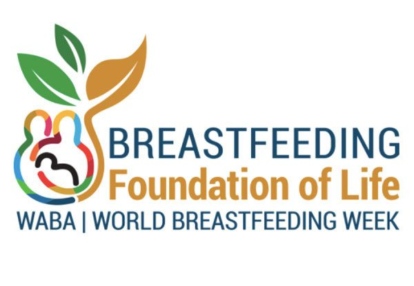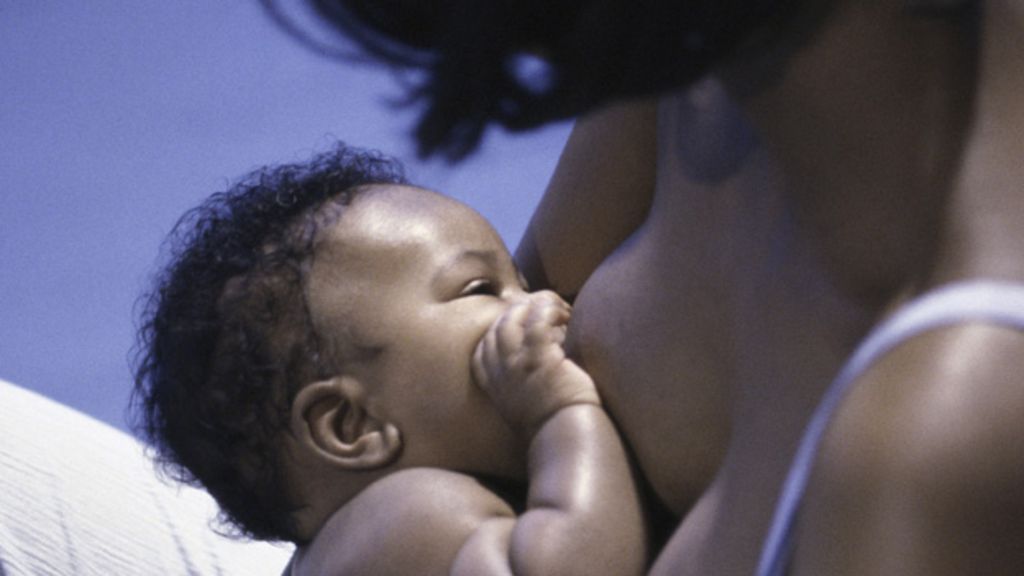World Breastfeeding Week is celebrated every year from 1 to 7 August to encourage breastfeeding and improve the health of babies around the world.
This year’s World Breastfeeding Week slogan is “Empower Parents, Enable Breastfeeding”.
Empowerment in this context is a process of providing support to create an enabling environment where mothers can breastfeed optimally. Breastfeeding is done by the mother and in many cases is left to her alone, however when fathers, partners, families, workplaces, and communities support mothers, breastfeeding improves.

This year, the World Health Organization is working with UNICEF and partners to promote the importance of family-friendly policies to enable breastfeeding and help parents nurture and bond with their children in early life, when it matters most. This includes lobbying for paid maternity leave for a minimum of 18 weeks, and paid paternity leave to encourage both partners/parents to share the responsibility of caring for their children on an equal basis.
Mothers also need access to a parent friendly workplace to protect and support their ability to continue breastfeeding when they return to work by having access to breastfeeding breaks; a safe, private, and hygienic space for expressing and storing breastmilk; and affordable childcare. Provision of such facilities will help encourage nursing mothers to go back to work without worrying about depriving their babies of breast milk.
Breastfeeding is important because it promotes better health for both mothers and children alike. Increasing breastfeeding to near-universal levels could save more than 800 000 lives every year, the majority being children under 6 months. Breastfeeding decreases the risk of mothers developing breast cancer, ovarian cancer, type 2 diabetes, and heart disease. It is estimated that increased breastfeeding could avert 20 000 maternal deaths each year due to breast cancer.
Babies that are breastfed are less likely to suffer from infections, asthma and sudden infant death, or develop obesity, diabetes and heart disease later in life.
WHO recommends exclusive breastfeeding starting within one hour after birth until a baby is 6 months old. Infants should be exclusively breastfed – i.e. receive only breast milk – for the first six months of life to achieve optimal growth, development and health. “Exclusive breastfeeding” is defined as giving no other food or drink – not even water – except breast milk.
Breast milk is the ideal food for the healthy growth and development of infants; breastfeeding is also an integral part of the reproductive process with important implications for the health of mothers.
Benefits of Breastfeeding for Both Mom and Baby:
- Breast milk contains everything your baby needs for the first six months of life, with the possible exception of vitamin D. The first milk is thick, rich in protein and loaded with beneficial compounds.
- Breast milk is loaded with antibodies, especially immunoglobin A, which can help prevent or fight illness in your baby.
- Breastfeeding may reduce your baby’s risk of infections and many diseases, including allergy, celiac disease and diabetes.
- Breastfed babies have lower obesity rates than formula-fed babies. They also have more leptin and more beneficial gut bacteria.
- Breastfeeding may affect your baby’s brain development and reduce the risk of future behavior and learning problems.
- Breastfeeding may make weight loss harder for the first 3 months after delivery. However, it may actually help with weight loss after the first 3 months.
- Breastfeeding increases oxytocin production, a hormone that causes contractions in the uterus. It reduces blood loss after delivery and helps the uterus return to its pre-pregnancy size.
- Breastfeeding mothers are less likely to develop postpartum depression. They have increased amounts of oxytocin in their system, which encourages caregiving, relaxation and bonding between mother and child.
- Breastfeeding for more than one year is linked to a 28% lower risk of breast and ovarian cancer. It has also been linked to a reduced risk of several other diseases.
- Regular breastfeeding pauses ovulation and menstruation. Some have used this as birth control, but it may not be completely reliable.
- Breastfeeding eliminates worry about buying or mixing formula, warming up bottles or calculating your baby’s daily needs.
There will be women who may not be able to breastfeed for different reasons. And for such women, formula feeding is still completely fine. It will provide the baby with the essential nutrients he or she needs.
However, breast milk also contains antibodies and other elements that protects babies from illness and chronic disease so if you’re a mother who is able to breastfeed, make the effort to do so for as long as you are able, bearing in mind the benefits for you and your baby.






